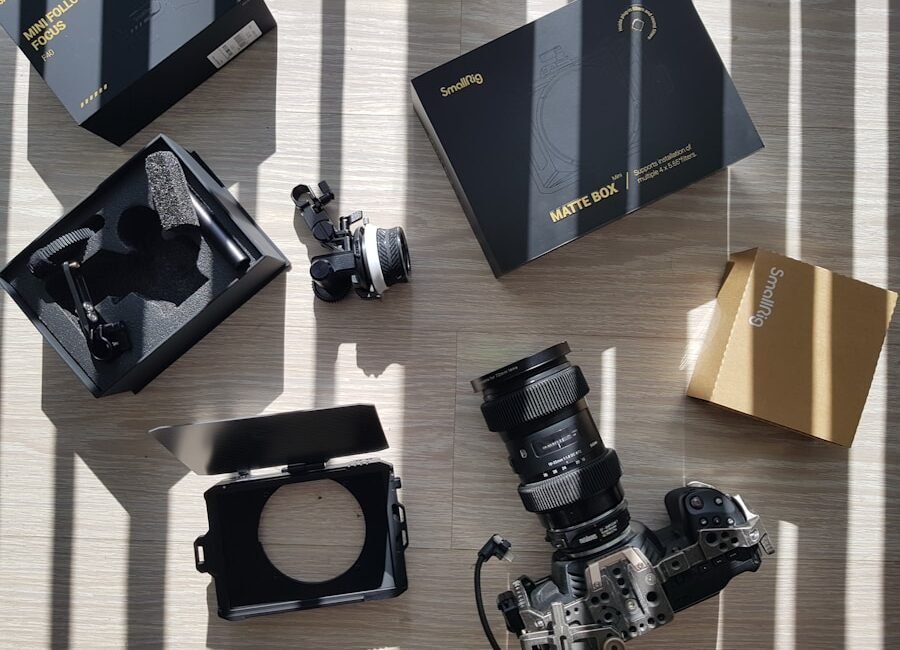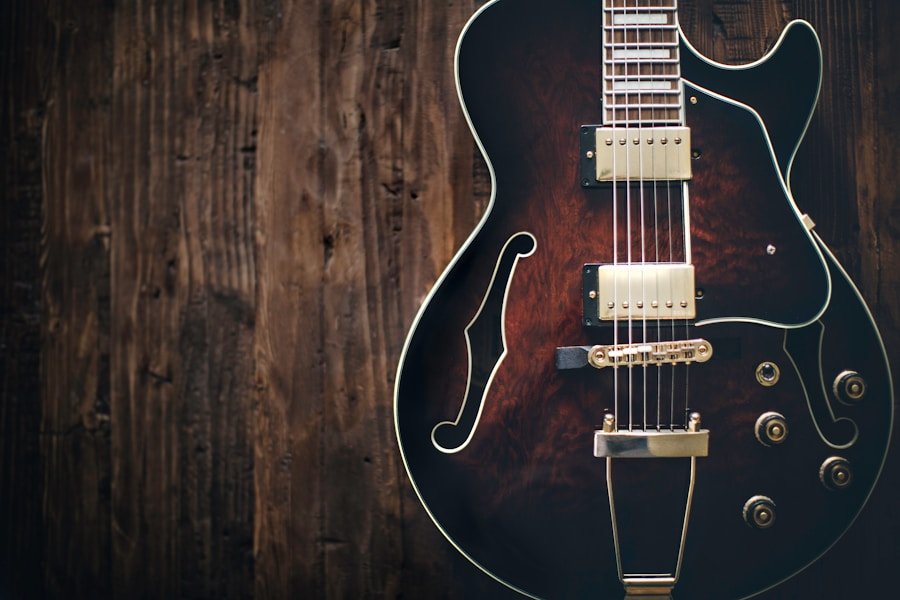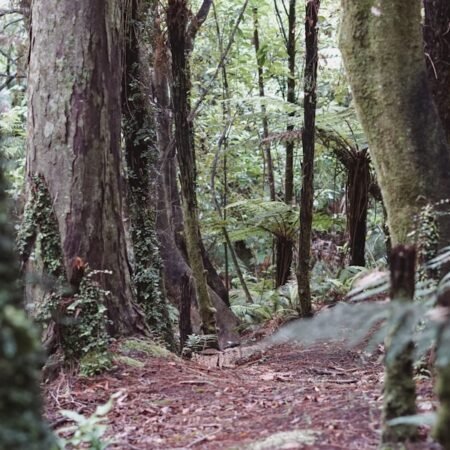When planning a camping trip, selecting the right musical instrument is vital for a successful and enjoyable experience. Musicians should consider the instrument’s size, weight, and durability to ensure it can withstand outdoor conditions. For instance, a grand piano is not a practical choice due to its weight and fragility, whereas a guitar or ukulele is more suitable due to its lightweight and portable nature.
Additionally, the weather conditions and terrain of the camping location should be taken into account when choosing an instrument. If the trip involves hiking or backpacking, a smaller and more compact instrument is more convenient to carry. The type of music to be played during the trip is also an essential factor in selecting the right instrument.
For a relaxed camping experience, an acoustic guitar or ukulele is ideal for playing campfire songs and creating a cozy atmosphere. In contrast, if the trip involves more adventurous activities like hiking or kayaking, a smaller and more portable instrument such as a harmonica or flute is better suited for playing music on-the-go. Ultimately, the chosen instrument should complement the overall camping experience and allow the musician to fully appreciate their time in nature.
Key Takeaways
- Choose a durable and portable instrument for camping to ensure ease of transportation and protection from the elements.
- Properly store and transport your instrument in a secure case or bag to prevent damage during outdoor activities.
- Protect your instrument from the elements by using a waterproof cover or tarp and avoiding extreme temperatures and humidity.
- Regularly maintain and clean your instrument in outdoor environments to prevent damage from dirt, dust, and moisture.
- Practice safe playing techniques and be prepared for emergency repairs to ensure the safety and security of your instrument while camping.
Proper Storage and Transportation of Instruments
Proper storage and transportation of instruments are essential when it comes to camping. Whether it’s a guitar, a violin, or a set of drums, ensuring that the instrument is securely stored and transported will help prevent damage and maintain its quality. When packing for a camping trip, it’s important to invest in a high-quality instrument case or bag that provides adequate protection from bumps, scratches, and the elements.
Additionally, using padding or cushioning inside the case can help further protect the instrument from any potential impact during transportation. It’s also important to consider the temperature and humidity levels of the camping location when storing and transporting instruments. Extreme temperatures and high humidity can have a negative impact on the condition of the instrument, so it’s important to keep them in a cool and dry place when not in use.
When it comes to transporting instruments during camping trips, it’s important to consider the mode of transportation and the potential risks involved. For example, if the camping trip involves traveling by car, it’s important to secure the instrument in a safe and stable position to prevent it from moving around during the journey. If the camping trip involves hiking or backpacking, it’s important to choose a lightweight and portable instrument that can be easily carried in a backpack or strapped to the body.
Ultimately, proper storage and transportation of instruments during camping trips will help ensure that they remain in good condition and ready to be played at any time.
Protecting Instruments from the Elements
Protecting instruments from the elements is crucial when it comes to camping. Exposure to rain, wind, sun, and extreme temperatures can have a negative impact on the condition of the instrument, so it’s important to take proactive measures to protect them. When setting up camp, it’s important to find a safe and sheltered spot where the instruments can be stored when not in use.
This could be inside a tent, under a tarp, or in a designated storage area that provides protection from the elements. Additionally, using waterproof covers or cases for instruments can help prevent damage from rain or moisture during camping trips. It’s also important to regularly check on the instruments and ensure that they are not exposed to any potential risks from the environment.
In addition to protecting instruments from rain and moisture, it’s also important to consider the impact of sun exposure on their condition. Prolonged exposure to direct sunlight can cause damage to the finish and structure of instruments, so it’s important to keep them shaded when not in use. This could involve using a portable canopy or umbrella to provide shade for the instruments during outdoor performances or practice sessions.
Ultimately, protecting instruments from the elements during camping trips will help ensure that they remain in good condition and ready to be played at any time.
Maintaining Instruments in Outdoor Environments
| Essential Camping Tips for Musicians |
|---|
| 1. Keep your instrument in a hard case |
| 2. Use a humidifier to protect wooden instruments |
| 3. Avoid extreme temperatures and direct sunlight |
| 4. Bring extra strings, picks, and other accessories |
| 5. Consider a portable instrument for camping |
Maintaining instruments in outdoor environments requires special attention and care to ensure that they remain in good condition. When camping, it’s important to regularly clean and inspect instruments for any signs of damage or wear. This could involve wiping down strings and surfaces with a clean cloth, checking for loose parts or screws, and tuning the instrument regularly to maintain its sound quality.
Additionally, it’s important to keep instruments away from potential hazards such as dirt, sand, or debris that could cause damage or affect their performance. When not in use, storing instruments in their cases or covers can help protect them from any potential risks in outdoor environments. In addition to regular maintenance, it’s also important to consider the impact of outdoor conditions on the condition of instruments.
For example, high humidity levels can cause strings to rust and wood to swell, while extreme temperatures can cause tuning instability and structural damage. It’s important to monitor these factors and take proactive measures to protect instruments from any potential risks. This could involve using dehumidifiers or moisture-absorbing packets inside instrument cases, as well as keeping them in a cool and dry place when not in use.
Ultimately, maintaining instruments in outdoor environments requires regular care and attention to ensure that they remain in good condition and ready to be played at any time.
Tips for Playing and Practicing Safely in the Wilderness
Playing and practicing music safely in the wilderness requires special consideration for both the musician and their surroundings. When camping, it’s important to find a suitable spot where music can be played without disturbing other campers or wildlife. This could involve choosing a secluded area away from main campgrounds or designated quiet zones where music can be enjoyed without causing any disruptions.
Additionally, it’s important to consider the volume of music being played and adjust it accordingly to ensure that it remains at a respectful level for everyone around. In addition to being mindful of others, it’s also important for musicians to consider their own safety when playing music in the wilderness. This could involve using insect repellent or wearing protective clothing to prevent bug bites or sunburn during outdoor performances.
It’s also important to stay hydrated and take regular breaks when playing music in hot or humid conditions to prevent fatigue or heat-related illnesses. Ultimately, playing and practicing music safely in the wilderness requires consideration for both others and oneself to ensure an enjoyable experience for everyone involved.
Emergency Repairs and Maintenance
Emergency repairs and maintenance are essential skills for musicians who enjoy camping with their instruments. When spending time in outdoor environments, there is always a risk of damage or wear on instruments that may require immediate attention. It’s important for musicians to be prepared with basic tools and supplies for emergency repairs such as extra strings, picks, tuning keys, and small screwdrivers.
Additionally, having knowledge of basic instrument maintenance such as tuning, restringing, and adjusting can help musicians address any issues that may arise during camping trips. In addition to being prepared for emergency repairs, it’s also important for musicians to have access to professional repair services if needed. This could involve researching local music stores or repair shops near the camping location where instruments can be taken for more extensive repairs or maintenance.
It’s also important to have contact information for instrument technicians or luthiers who specialize in repairing specific types of instruments such as guitars, violins, or brass instruments. Ultimately, being prepared for emergency repairs and maintenance will help musicians address any issues that may arise with their instruments during camping trips.
Ensuring the Safety and Security of Instruments while Camping
Ensuring the safety and security of instruments while camping is crucial for preventing theft or damage. When spending time in outdoor environments, it’s important for musicians to take proactive measures to protect their instruments from potential risks. This could involve using locks or security cables to secure instruments when not in use, as well as keeping them out of sight from potential thieves or vandals.
Additionally, it’s important to keep instruments stored in safe and secure locations such as inside tents or locked vehicles when not in use. In addition to preventing theft, it’s also important for musicians to consider the impact of wildlife on the safety of their instruments while camping. This could involve using animal-proof containers or storage solutions to prevent damage from curious critters such as raccoons or bears.
It’s also important to keep food and other scented items away from instruments to avoid attracting unwanted attention from wildlife. Ultimately, ensuring the safety and security of instruments while camping requires proactive measures to prevent theft and damage from both humans and wildlife. In conclusion, protecting your precious instrument while camping requires careful consideration of its selection, storage, transportation, protection from elements, maintenance in outdoor environments, safe playing practices in wilderness areas, emergency repairs and maintenance skills as well as ensuring its safety and security while camping.
By following these essential tips for musicians who enjoy spending time in nature with their instruments, you can ensure that your musical companion remains in good condition and ready to be played at any time during your camping adventures.
FAQs
What are some essential camping tips for musicians to protect their instruments?
Some essential camping tips for musicians to protect their instruments include investing in a quality instrument case, using a humidifier to regulate the moisture levels, avoiding extreme temperatures, and keeping the instrument away from direct sunlight and water.
How can musicians protect their instruments from damage while camping?
Musicians can protect their instruments from damage while camping by keeping them in a secure and padded case, avoiding exposure to extreme temperatures and humidity, and being mindful of where the instrument is placed to prevent accidental damage.
What are some precautions musicians should take when camping with their instruments?
Some precautions musicians should take when camping with their instruments include keeping the instrument in a safe and secure location, avoiding exposure to the elements, and being mindful of potential hazards such as rough terrain or wildlife.
Why is it important for musicians to take extra care of their instruments while camping?
It is important for musicians to take extra care of their instruments while camping because the outdoor environment can pose various risks to the instrument, such as exposure to extreme temperatures, moisture, and physical damage. Proper care and precautions can help prevent costly repairs or replacements.













